Politics
/
StudentNation
/
August 26, 2025
Allison Minnerly speaks about her upcoming resolution urging a ceasefire, an arms embargo on Israel, and recognition of Palestine as a state.
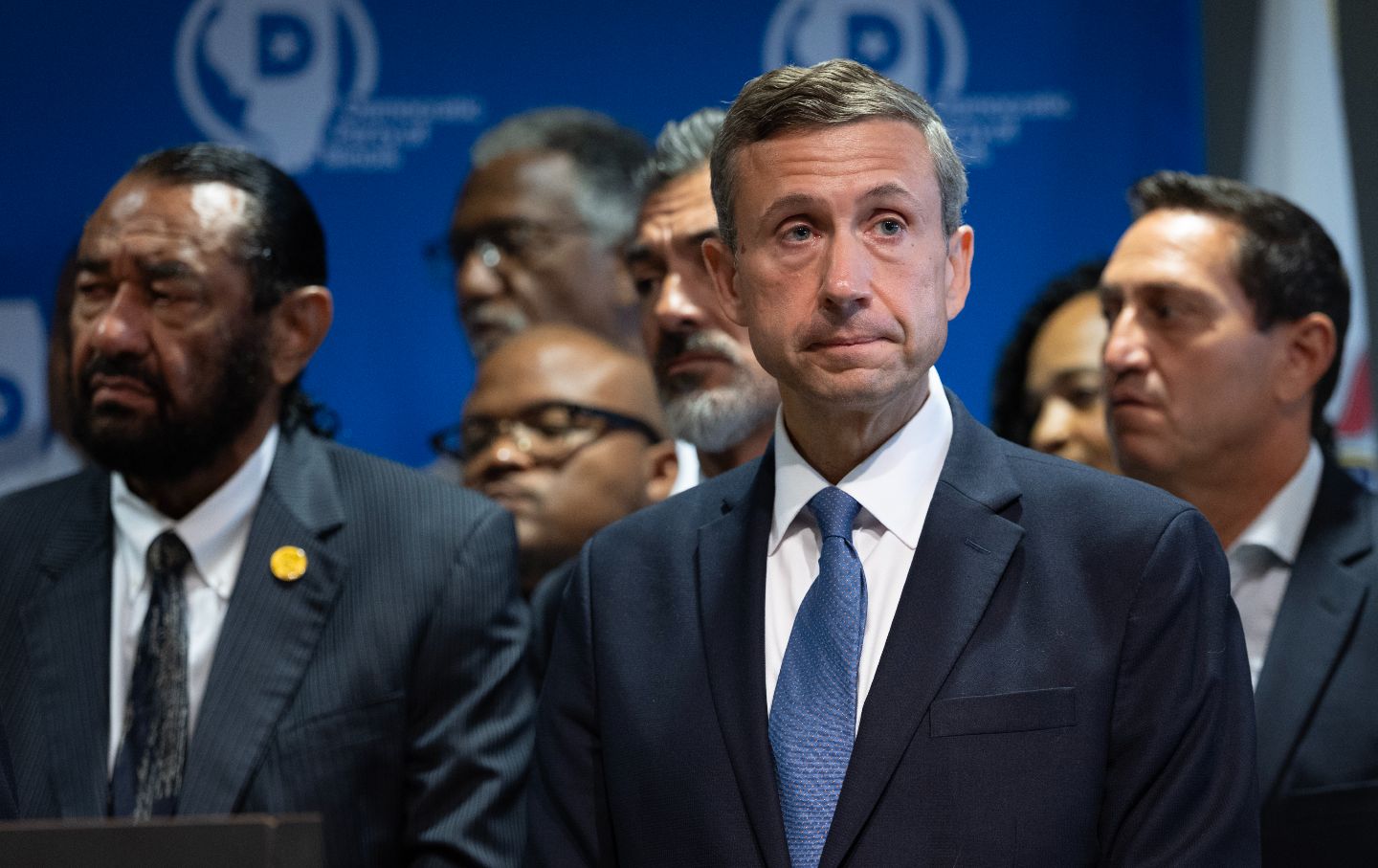
Ken Martin, the chairman of the Democratic National Committee, who led a counter-resolution to Allison Minnerly’s proposal.
(Scott Olson / Getty)
The United States has long been the patron for Israel’s military weaponry, with the rendering of apaches, missiles and bombs to the region dating back to the 1960s. To this day, more than $250 billion have been spent on munitions for Israel. And while both the Democrat and Republican parties have unanimously backed the spending of taxpayer dollars in this way, it seems that the tide may be beginning to shift.
On August 26, the Democratic National Committee is set to vote on two resolutions pertaining to Israel’s war in Gaza. Of the two resolutions, Resolution 18, proposed by 26-year-old DNC member Allison Minnerly, calls for a ceasefire—along with an arms embargo on Israel and recognition of Palestine as a state. Resolution 3, a counterresolution to Minnerly’s proposal led by Chairman Ken Martin, also calls for a ceasefire, but does not include an arms embargo.
Recent polls show that only a small percentage of Democrats are supportive of Israel’s military actions. While the Democratic voter base may now oppose the US backing Israel through military aid, the DNC resolutions will serve as a litmus test for whether such sentiment is reflected amongst lawmakers.
The Nation spoke with Minnerly about her resolution on August 22. This interview has been condensed and edited for length and clarity.
Zoya Alam: Can you give us some information on your DNC resolution? What exactly are you calling for?
Allison Minnerly: Right now, we see a humanitarian crisis in Gaza, where we see images of starved bodies, leveled cities, and decimated buildings. We have seen, for years now, the horror of these conditions. This is an opportunity now for the Democratic Party—who says that they also are concerned about this ongoing humanitarian crisis—to make it very clear to their elected officials, but also to their voters, that this resolution would signify that the party would not continue sending military aid and weapons to the region.
Current Issue

Some of our US senators and our members of Congress have the direct ability to influence this through their votes. So it’s one thing if the Democratic Party calls for a ceasefire; it’s another if we back that up with our actions. This resolution will be one smaller step in how we can communicate to our elected leaders, officials, and voters that this is the clear position of the party.
ZA: Alongside your resolution is chairman Ken Martin’s counter-resolution. What is his resolution offering? And why would you say your resolution is better?
AM: To call for a ceasefire—and to not acknowledge that elected Democratic officials have and continue to send weapons and military aid to the region—simply does not meet the moment. It also does not meet where the voters are. So I would say that while the resolution can recognize the dignity of Palestinians, but also acknowledge the humanitarian crisis, it just doesn’t go far enough.
ZA: Part of your resolution calls for Congress to recognize Palestine as a state, and also proposes an arms embargo on Israel. What was the impetus for you to bring this resolution to the table? And why now?
AM: I think it starts by acknowledging that this issue is not just something brought forward by me alone. It’s a conversation that is had by voters across the country right now, where we see that only 7 percent of Democrats support the Democratic Party’s current position [on Israel’s military action in Gaza] as of polling last week. So this is not just a sentiment that is echoed by one DNC member. This is the entire Democratic base that is really calling for this change, but also for a more clearly communicated stance. I think that there’s a much larger base of people that are really pushing this, and I’m just one person that has the opportunity and position through having a membership seat on the DNC to do it.
I’m a newer member, so this is one of the first opportunities that I’ve had to have any say in this matter. Part of it is just related to timing, but I do think that something else that’s worth noting is that there have been conversations over ceasefires for years now, and now it’s been several years throughout this crisis. There has to be a shift in exactly how we talk about this, because we can’t keep having the same conversation on loop.
Everybody can agree that we want this humanitarian crisis to end. But so long as we just keep calling for the same old same old, you’re not gonna expect to see too much of a shift.
ZA: The Democratic majority for Israel has condemned your resolution. They say it “does not even mention October 7.” And hostages are a key concern in chairman Ken Martin’s counter-resolution. What is your response to them?
AM: Democratic elected officials have the ability—some of them through votes—to influence what weapons and what aid does or does not reach the region. And so while we can talk about Hamas and the horror and atrocities that have ensued, we cannot have that conversation if we’re not acknowledging the role that the Democratic Party and our elected officials have in shaping that conversation.
There is a more direct line between the US government and Israel than there is between the US government and Hamas. Any conversation that doesn’t acknowledge that just simply isn’t rooted in the reality of where we are right now. We have elected officials that vote on bills which supply weapons and aid to the region. So I think what’s really important is that that’s what’s within our control. I don’t think that it would fully do it justice if we made promises that we can’t keep.
ZA: You’re 26 and one of the younger members of the DNC. Did you face any pushback when proposing this resolution? Of course, you have the chair putting out a counter-resolution, but what was the environment like for you to propose such an idea?
AM: The amount of support that I’ve heard from other members—but also just from everyday people and voters, ones that I organize with here in Florida but also just ones that have reached out from across the country—really just shows that there is a large disconnect between party leadership and the voters.
There’s a big push, obviously, from the top down, to try and silence this conversation, because ultimately the party leadership is not in line with the voters. So my hope is that starting this conversation for the first time in a formal setting in the DNC could be the larger push for voters to kind of reclaim the control of the party.
ZA: What are you anticipating on August 26?
AM: A conversation that might just be the start—but definitely will not be the end—of talking about Gaza and the humanitarian crisis within the Democratic Party. But I also anticipate that there will probably be divisiveness, but it’s long overdue. And I think that it’s now or never.
Popular
“swipe left below to view more authors”Swipe →
ZA: What do you have to say to Americans who don’t side with the Republican Party and Trump’s agenda but also feel untethered by the current agenda of the Democratic Party—especially when it comes to its current stance on Israel?
Well, I can speak as one of those same Democrats, and what I will say is that for every time that you have felt hopeless or for every time that you have felt frustrated, there is the unique opportunity to get more involved. So I urge people, if you don’t feel represented within the party structure, to run into the fire, to join your local Democratic executive committee, to join your local Young Dems chapter, and to really start having these conversations.
So often I think that we view power as something distant, but if you are willing to put yourself out there, and if you are willing to have the conversation, ultimately, the majority of people you know adopt the same position that we’re talking about right now. Had I not made that decision to run, and had I not made that decision to really represent the voices of the Young Dems that I organize with, we wouldn’t be having this conversation. I think it just goes to show that anybody can and should step up and have a say, because we all have an equal claim in it.
ZA: Anything else the people should know?
AM: Leadership can get comfortable, or can even want to shy away from conversation, to stop conflict, and I think that there have to be hard conversations. This is one of those times.
In this moment of crisis, we need a unified, progressive opposition to Donald Trump.
We’re starting to see one take shape in the streets and at ballot boxes across the country: from New York City mayoral candidate Zohran Mamdani’s campaign focused on affordability, to communities protecting their neighbors from ICE, to the senators opposing arms shipments to Israel.
The Democratic Party has an urgent choice to make: Will it embrace a politics that is principled and popular, or will it continue to insist on losing elections with the out-of-touch elites and consultants that got us here?
At The Nation, we know which side we’re on. Every day, we make the case for a more democratic and equal world by championing progressive leaders, lifting up movements fighting for justice, and exposing the oligarchs and corporations profiting at the expense of us all. Our independent journalism informs and empowers progressives across the country and helps bring this politics to new readers ready to join the fight.
We need your help to continue this work. Will you donate to support The Nation’s independent journalism? Every contribution goes to our award-winning reporting, analysis, and commentary.
Thank you for helping us take on Trump and build the just society we know is possible.
Sincerely,
Bhaskar Sunkara
President, The Nation
More from The Nation
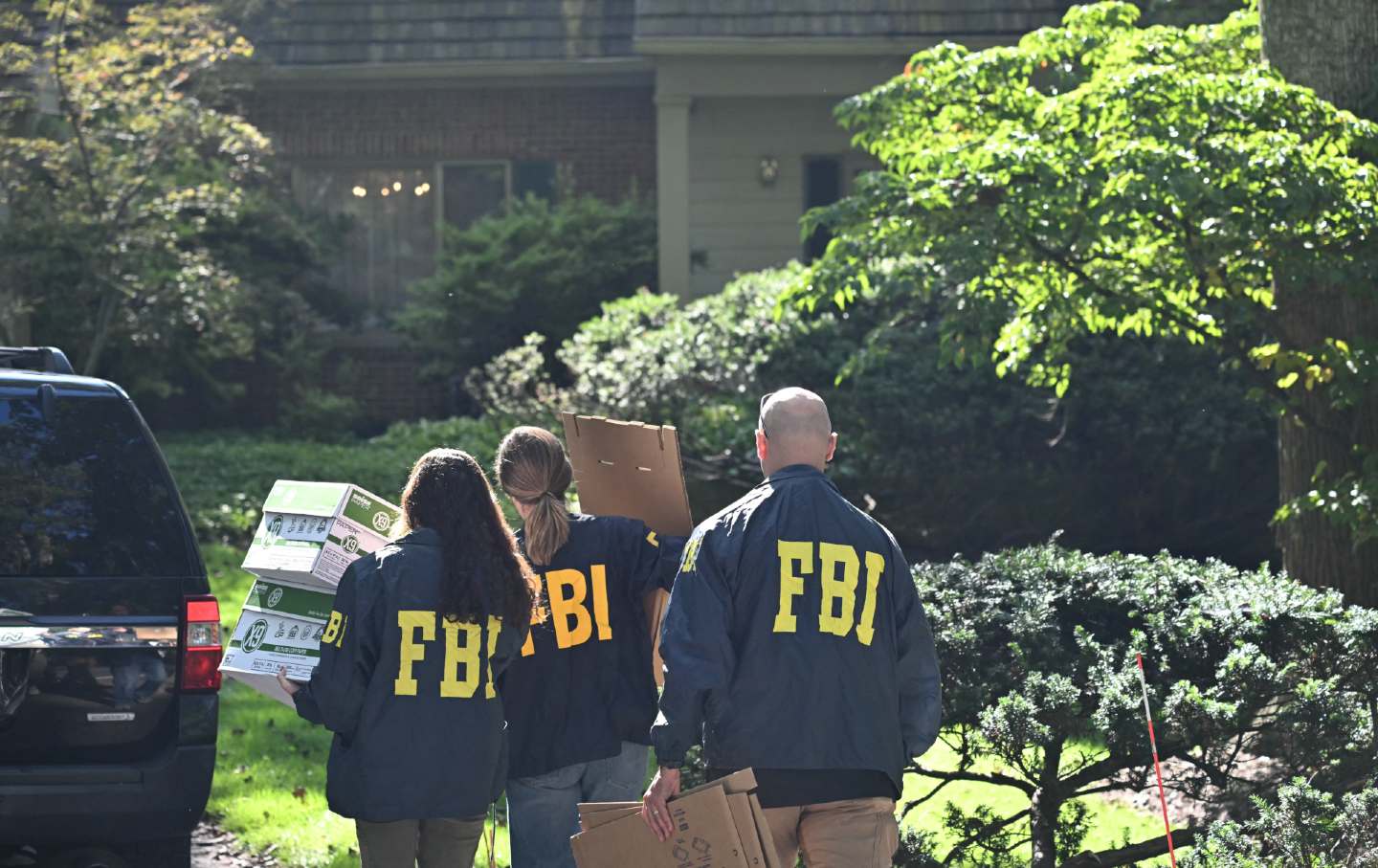
The raids on my home and Bolton’s marks a chilling evolution from George W. Bush to Trump 2.0.
Thomas Drake
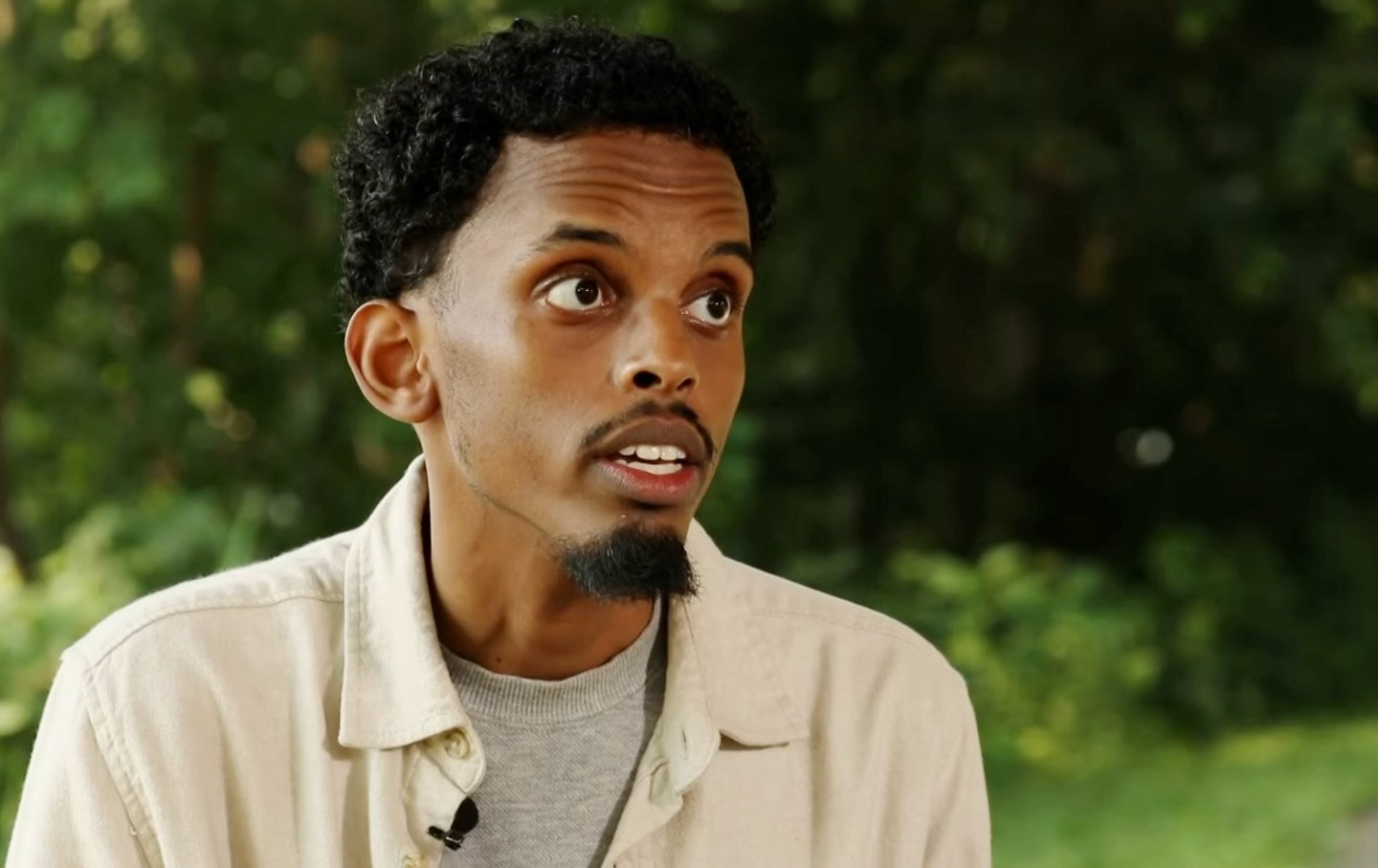
Democratic socialist mayoral candidate Omar Fateh won the endorsement of his city party. Then the state party overturned the result. Representative Ilhan Omar calls it “inexcusabl…
John Nichols
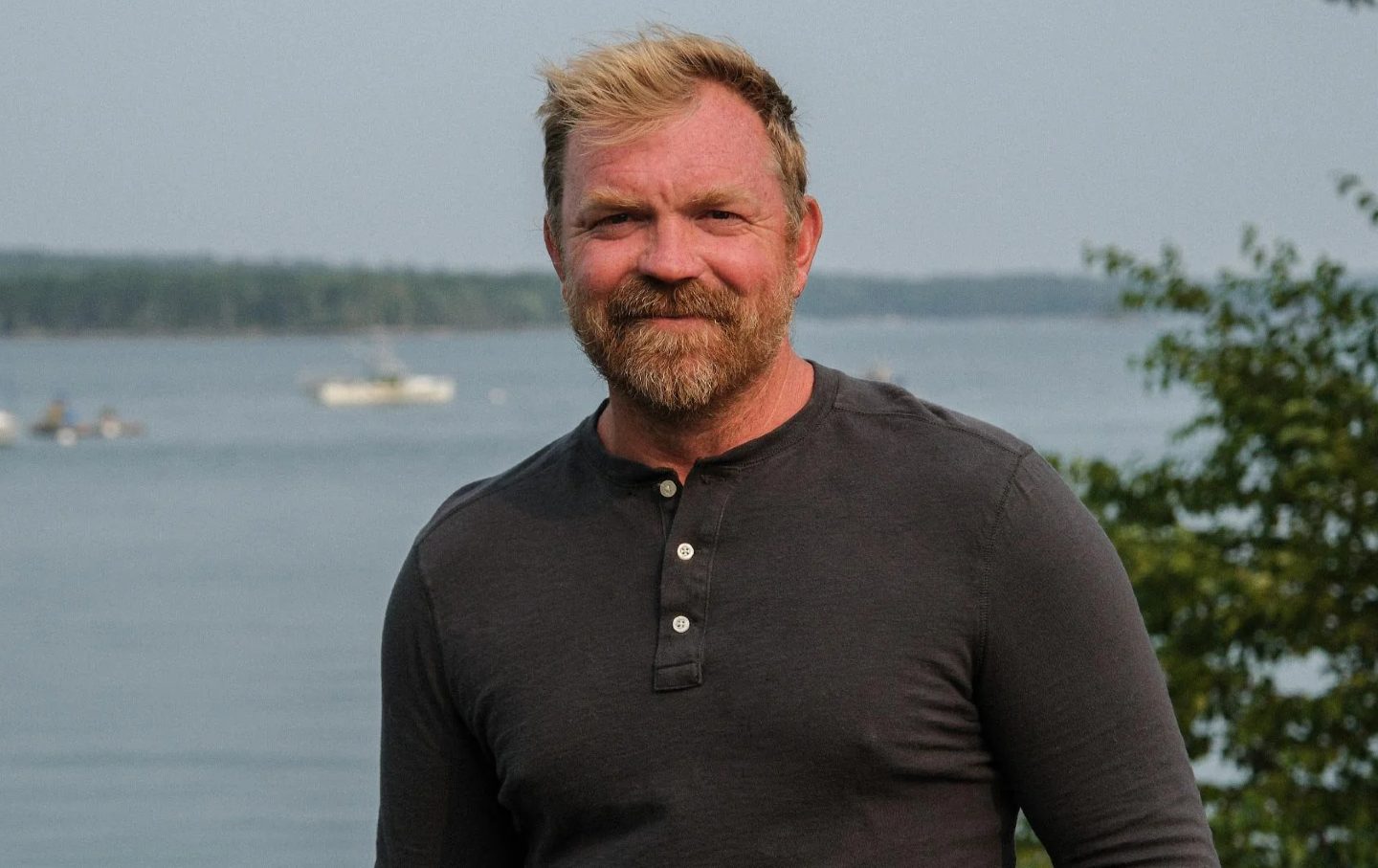
The Maine oyster farmer embodies the populist energy that Americans have been looking for. He’s the best candidate to defeat Republican Senator Susan Collins.
Aaron Regunberg
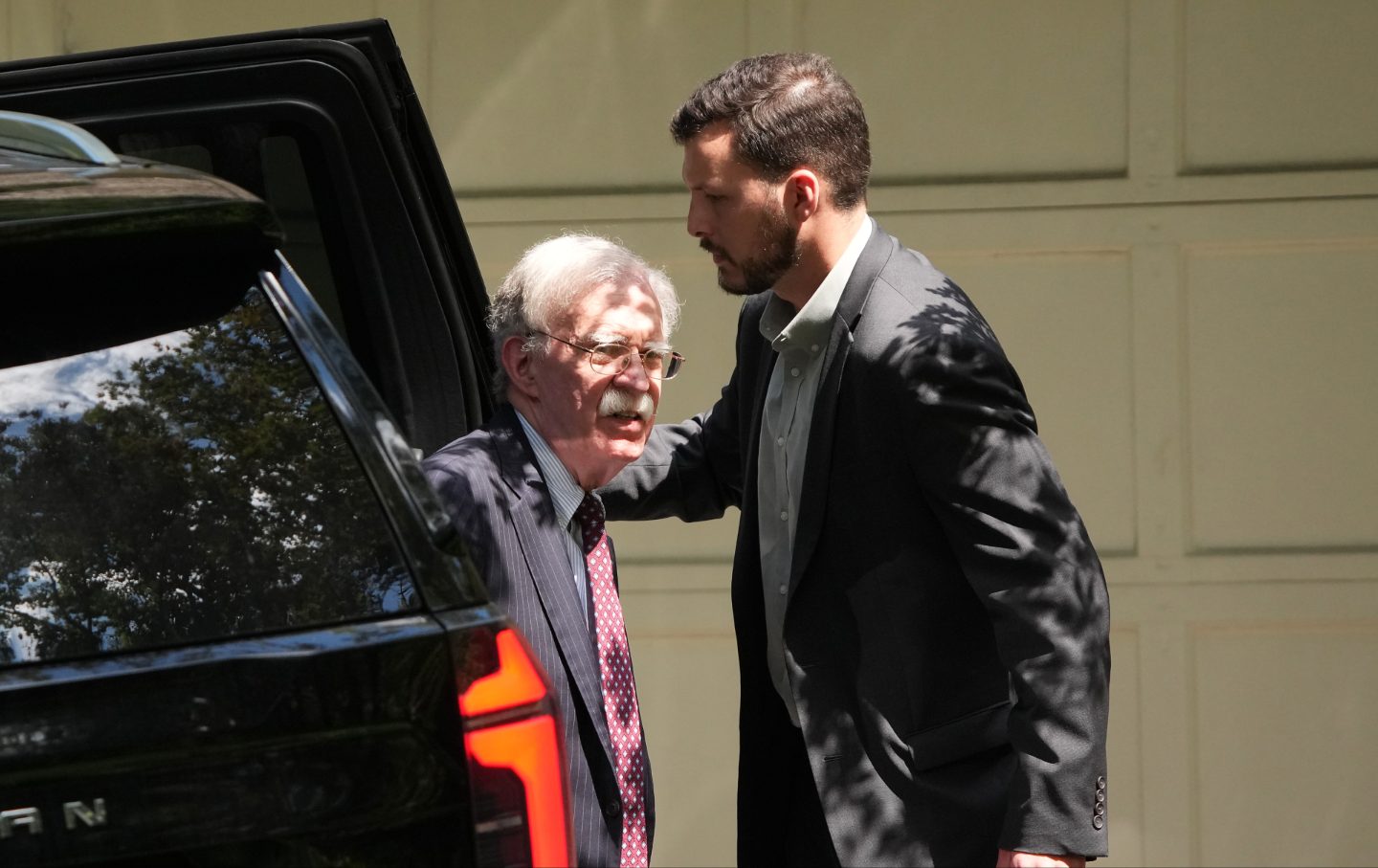
Trump’s former national security adviser is a very hateable figure. But he still needs defending from the president’s lawlessness.
Jeet Heer


